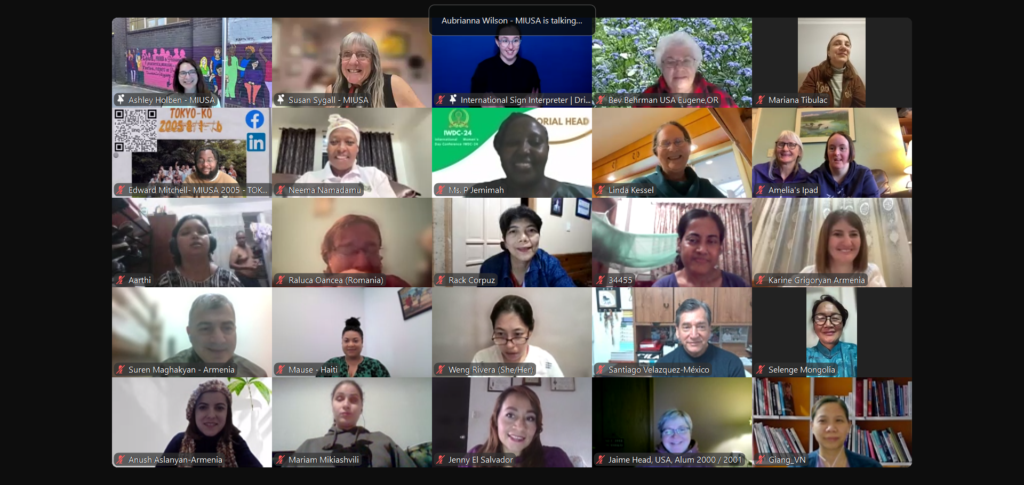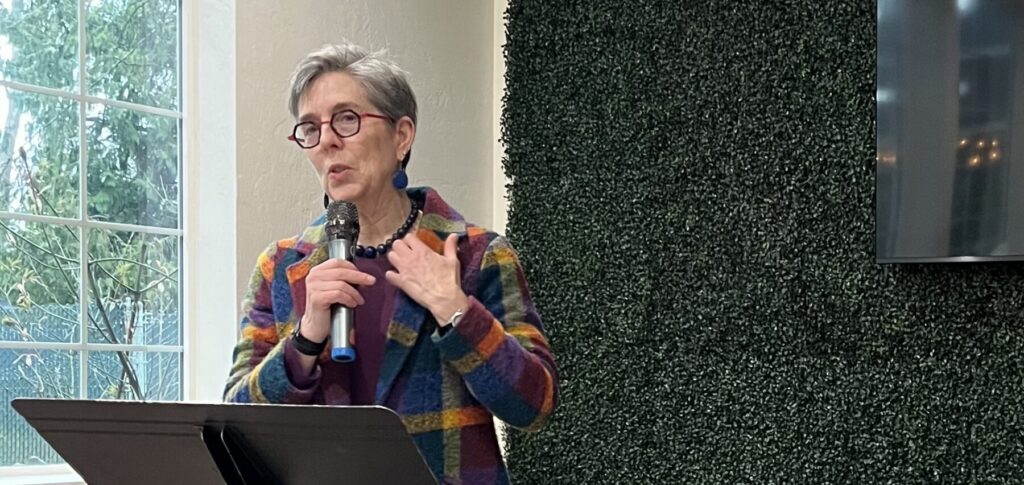On a recent trip to Tbilisi, Georgia, I spent a morning at public school #202, a small school for the blind tucked into a residential neighborhood. My visit coincided with outreach for the Future Leaders Exchange (FLEX) program, a high school exchange program sponsored by the U.S. Department of State.
As I climbed the stairs to an auditorium on the second floor, I caught a glimpse of several clean but sparsely furnished classrooms. Although there may be computers and other technology available for the students’ use, I didn’t see any.
Together with representatives of the FLEX program and two FLEX alumni who are blind, I stood in front of the fifteen to twenty students seated in the auditorium while my counterparts shared information about the program in Georgian. All of the students listened respectfully, but only one expressed an interest in applying. At the end of the presentation, the students filed out of the auditorium using their hands to navigate through the door and into the hallway. I didn’t see a single student with a white mobility cane.
That same day, I had an opportunity to meet with seven FLEX alumni with disabilities from Georgia, including Mariam and Esma, the two blind alumni who accompanied me to public school #202. The contrast between the students at public school #202 and those who gathered to laugh and reminisce over their FLEX experiences could not have been greater.
When I asked about the impact of the FLEX program on their lives, all spoke of the confidence and independence they gained abroad.
Mariam lived with a host family in South Carolina during her FLEX year, and she held a white mobility cane for the first time in her life while a student there. She now has a Master’s Degree in Special Education from the University of Oslo and is the founder and director of an NGO that advocates for the rights and inclusion of people who are blind and low vision. Esma is an undergraduate at Tbilisi State University who has participated in countless leadership opportunities since her exchange experience in Florida.
Youth exchange programs are capable of propelling underserved youth from many diverse backgrounds to accomplish things often reserved for the privileged and connected in their countries. But it is hard to imagine a greater impact than that on youth with disabilities in countries where segregation continues to pervade all aspects of society, from education to employment to community life.
In order to derive the biggest return on our investment in youth exchange programs, the inclusion of youth with disabilities should be a priority, perhaps the priority, in recruitment and selection. We should be seeing students with diverse disabilities participating from every FLEX country, every year, and in far greater numbers, so that like Mariam and Esma, they are prominent among the leaders of tomorrow.
Read about how Esma’s Exchange Experience Sparked New Opportunities.
Sign up for our E-News






Manage Your Privacy